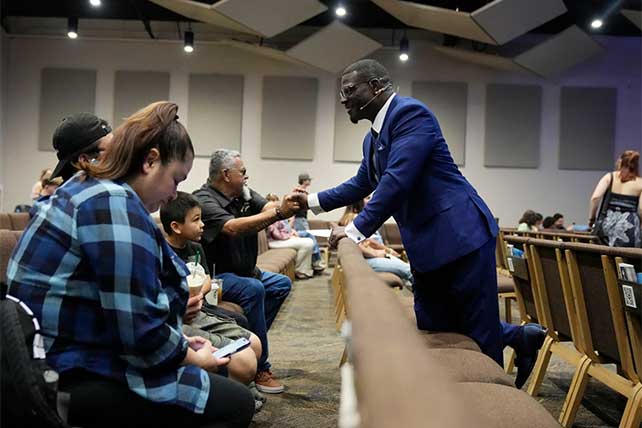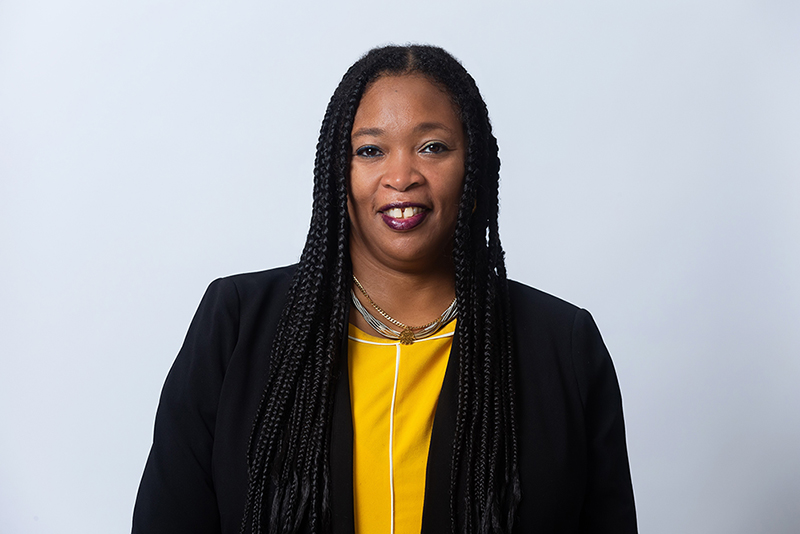“We have to ensure that when we talk about repair and reparative justice, that we think of it holistically, that we don’t think of it only as direct cash payments,” said Green, pastor of St. Luke African Methodist Episcopal Church in Harlem. “There’s also a way to engage and ensure that the climate is more compatible for living and thriving and education systems are created that empower and affirm the dignity of all people.”
Yolanda Savage-Narva. Courtesy photo Union for Reform Judaism
Savage-Narva said the resources for congregations being prepared by the URJ’s Religious Action Center — which were refined by the Harvard students — will include history that may help educate those resistant to the idea of reparative justice.
“It’s important to also acknowledge that Holocaust survivors also received reparations from the government of Germany and that there are other groups in the United States who have also received reparations,” she said, adding that moral and spiritual aspects should be part of the conversations in Jewish communities and more broadly.
“It’s repair. It’s truth and reconciliation.”
She and Green will be bringing some of the students’ longer-term recommendations, which range from developing a reparations curriculum at URJ summer camps to building broader coalitions with Muslim, Buddhist and Hindu groups, to their organizations for further consideration.
“Over the course of this project, the determination, joy, and laughter shared while collaborating over Zoom calls and meetings demonstrated the power of interfaith efforts,” the report concluded. “Across the United States, interfaith advocacy has propelled local reparations efforts, and the same joint energy is needed in national advocacy for reparations.”
This article originally appeared here.


